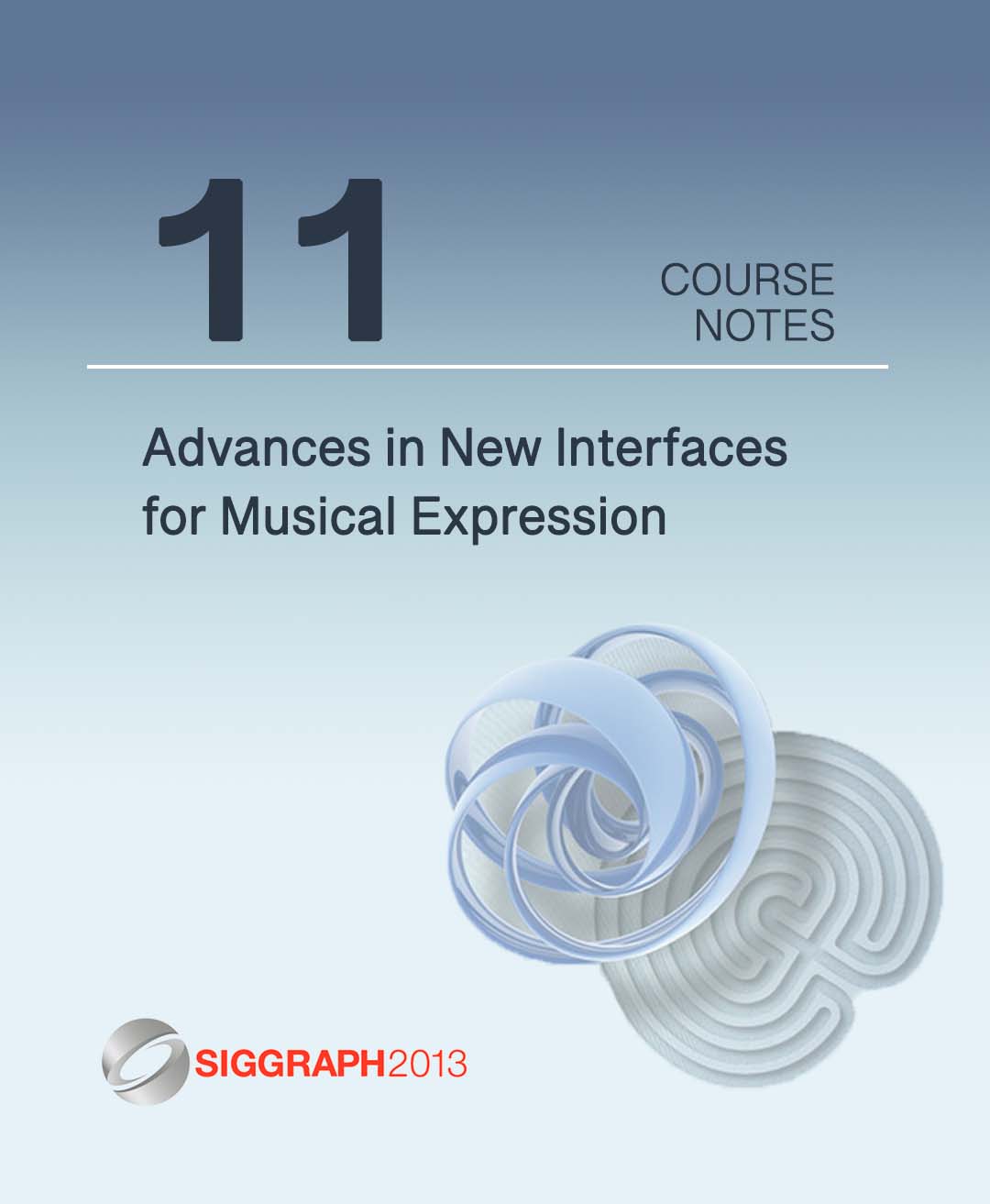“Advances in New Interfaces for Musical Expression” by Fels and Lyons
Conference:
Type(s):
Title:
- Advances in New Interfaces for Musical Expression
Organizer(s):
Presenter(s)/Author(s):
Entry Number:
- 11
Abstract:
Prerequisites
Familiarity with the basics of interactive media. No background in music or computer audio is assumed.
Intended Audience
Interaction designers, game designers, artists, and academic and industry researchers who have a general interest in interaction techniques for multi-modal musical expression.
Description
Advances in digital audio technologies have led to a situation where computers now play a role in most music production and performance. Digital technologies offer unprecedented opportunities for creation and manipulation of sound, but the flexibility of these new technologies implies an often confusing array of choices for composers and performers. Some artists have responded by using computers directly to create music, which has generated an explosion of new musical forms. However, most would agree that the computer is not a musical instrument, in the same sense as traditional instruments, and it is natural to ask “how to play the computer” using interface technology appropriate for human brains and bodies.
In 2001, we organized the first workshop on New Interfaces for Musical Expression (NIME) to attempt to answer this question by exploring connections with the better-established field of human-computer interaction. This course summarizes what has been learned at the annual NIME conferences since that first workshop. It begins with an overview of the theory and practice of new musical-interface design and explores what makes a good musical interface and whether there are any useful design principles or guidelines available. Topics include mapping from human action to musical output, control intimacy, and tools for creating musical interfaces (sensors and microcontrollers, audio synthesis techniques, and communication protocols such as Open Sound Control and MIDI). The remainder of the course consists of several case studies that represent the major broad themes of the NIME conference, including augmented and sensor-based instruments, mobile and networked music, and NIME pedagogy.





